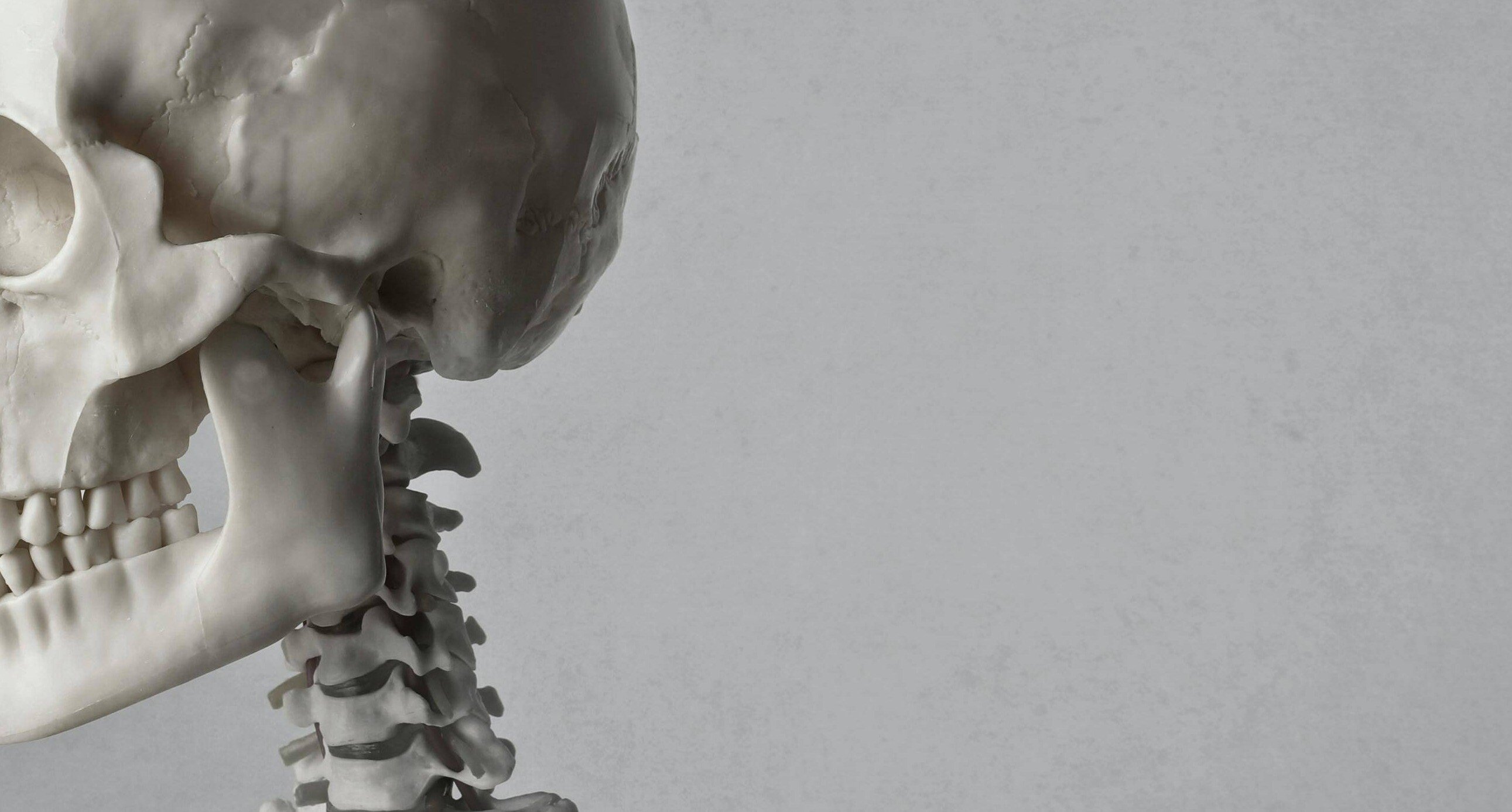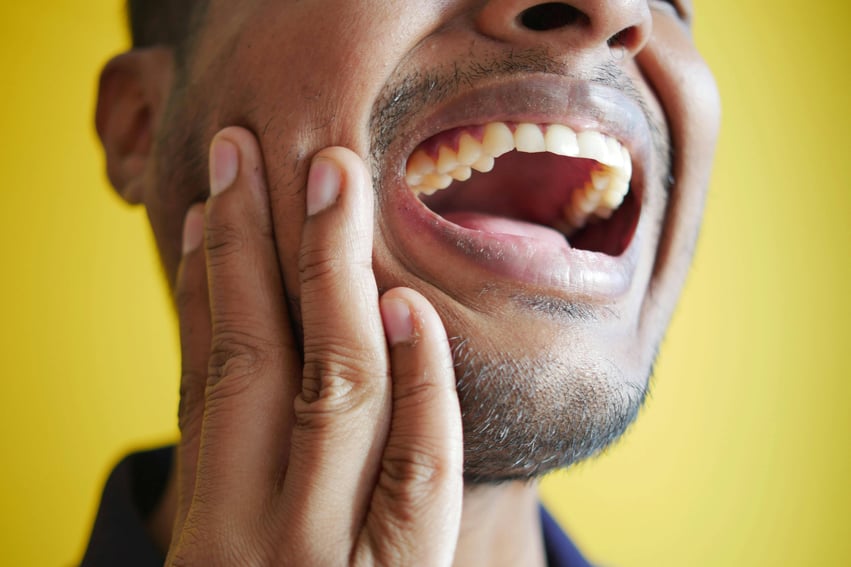Does TMJ Disorder Get Worse Without Treatment?
April 10th, 2024 | 4 min read

Temporomandibular Joint Disorder, commonly referred to as TMJ disorder, is a condition that affects a significant number of individuals, impacting the muscles and joints that connect your jawbone to your skull.
At NYC Smile Design, we've encountered numerous cases of Temporomandibular Joint Disorder (TMJ disorder), each unique in its complexity and impact on the patient's daily life. Leveraging our extensive experience, we aim to demystify TMJ disorder for those grappling with its symptoms or concerned about its progression when left untreated.
A frequently asked question by many patients is, "What happens if TMJ disorder is left untreated?" This blog seeks to shed light on this concern, exploring the ramifications of untreated TMJ disorder and emphasizing the importance of seeking timely treatment.
Understanding TMJ Disorders
Understanding TMJ Disorders encompasses a broader look into the complexities of the temporomandibular joints, pivotal for daily activities like speaking, chewing, and yawning. Individuals with TMJ disorders often experience a range of disruptive symptoms, from persistent jaw pain and difficulty opening or closing the mouth to an audible clicking or popping sound when moving the jaw. Individuals experience bruxism- clenching and or grinding of teeth, which leads to biting and restorative issues. Some may also encounter ear pain, headaches, and even discomfort that radiates down the neck and shoulders, further complicating daily life. This array of symptoms not only indicates the joint's dysfunction but also its impact on surrounding tissues and overall facial harmony. Moreover, TMJ disorders can lead to significant discomfort, affecting one's ability to eat, speak, and even sleep comfortably, thereby diminishing overall quality of life and well-being. The intricate nature of this condition underscores the importance of a thorough understanding and appropriate management to alleviate symptoms and restore function.
The Importance of Early Treatment
Addressing TMJ disorders promptly is crucial for several reasons. Early intervention can prevent symptoms from worsening and help avoid the development of more severe complications. Without treatment, TMJ disorders can lead to persistent pain, making everyday activities increasingly difficult.
Potential Risks of Untreated TMJ Disorder
Leaving TMJ disorders untreated can have a profound impact on a person's quality of life and overall health. Here's a closer look at the potential risks associated with ignoring this condition:
Increased Pain and Discomfort
The most immediate consequence of untreated TMJ disorders is the significant increase in pain and discomfort they bring. Initially, this may manifest as mild discomfort in the jaw area, but without proper intervention, it can escalate into severe, chronic pain. This isn't limited to the jaw—patients often report related headaches, earaches, neck pain, tooth pain, shifting teeth, the development of an uncomfortable bite, and loss of tooth structure, all of which can become persistent and debilitating over time.

Joint Damage
Chronic TMJ disorder puts continuous stress on the temporomandibular joints, leading to wear and tear that can severely damage these joints. This deterioration can limit the jaw's functionality, affecting the ability to chew, speak, and even open and close the mouth. In severe cases, this can lead to a locked jaw, either in an open or closed position, necessitating emergency medical care.
Teeth and Bite Issues
The clenching and grinding associated with TMJ disorders can lead to changes in the way your teeth meet- called your bite. This can be an uncomfortable situation where your teeth do not sit comfortably together and often experience soreness in the teeth and facial muscles. There can also be loss of tooth structure that not only makes teeth more vulnerable and less protected but makes them also more sensitive. This loss of tooth structure also directly affects the bite and the way your teeth meet. This can become a vicious circle, whereby the changed bite from loss of tooth structure or position results in more clenching and grinding, which then causes more loss of tooth structure. And the cycle repeats.
Impact on Overall Health
The effects of untreated TMJ disorder extend beyond localized pain and discomfort, potentially contributing to a cascade of other health issues. For example, the constant pain associated with TMJ and the clenching and grinding can interfere with sleep patterns, leading to insomnia or disturbed sleep. Changes in the jaw position can affect the airway space and contribute in severe cases to sleep apnea. This, in turn, can exacerbate stress, contribute to mood disorders like anxiety and depression, and even affect cardiovascular health over time. Moreover, the difficulty in chewing can lead to dietary restrictions and nutritional deficiencies, further impacting overall health.
Increased Dependency on Pain Medication
As pain and discomfort increase, there's a tendency to rely more heavily on pain medications. This can lead to a cycle of medication overuse, which not only masks the symptoms without addressing the underlying issue but can also result in medication-related side effects and dependencies.
Emotional and Psychological Impact
The chronic pain, functional limitations, and sleep disturbances associated with untreated TMJ disorder can take a significant emotional and psychological toll. Patients may experience heightened stress, anxiety, and depression, impacting their social interactions, professional life, and overall sense of well-being.
Treatment Options for TMJ Disorder
A variety of treatment options are available for managing TMJ disorder, ranging from conservative measures like physical therapy and oral appliances to more advanced treatments including medication and, in some cases, surgery. Dental intervention can be accomplished with orthodontics and/or restorations to restore a comfortable, airway-supporting bite.
Treating TMJ disorder varies widely based on individual needs and condition severity. Here's a concise overview:
- Physical Therapy and Oral Appliances: Support jaw muscles and reduce strain with exercises and custom mouthguards.
- Orthodontics and/or Dental Restoration: Moves teeth or restores teeth back to a more supportive position for the TMJs and the muscles of the face
- Medications: Over-the-counter pain relievers, muscle relaxants, and in some cases, corticosteroid injections can manage pain and inflammation. Botox treatment in the clenching muscles is effective in shutting down hypertrophied spastic muscles responsible for bite changes.
- Minimally Invasive Procedures: Techniques like arthrocentesis and arthroscopy can address joint issues with less downtime.
- Surgery: Reserved for severe cases with significant joint damage, offering repair or replacement solutions.
- Lifestyle Adjustments: Soft diets, stress management, and heat or cold applications can complement medical treatments.

Seeking Professional Help
Consulting with a dental or medical professional is essential for anyone experiencing symptoms of TMJ disorder. A proper diagnosis is crucial for effective treatment, and early intervention can prevent the condition from worsening. Your dentist is equipped to provide comprehensive evaluations and discuss the most appropriate treatment options for your situation.
Finding a TMJ Solution
TMJ disorder is a condition that should not be ignored. The potential risks of untreated TMJ underscore the importance of seeking prompt, professional treatment. If you suspect you may have TMJ disorder, take the first step towards relief and recovery by consulting with a healthcare provider.
If you're experiencing symptoms of TMJ disorder, don't wait for the condition to worsen. Schedule a consultation with NYC Smile Design to explore your treatment options and embark on the path to a more comfortable and healthier smile. Our experienced team is dedicated to providing personalized care, ensuring you receive the most effective treatment for your TMJ disorder.
Topics:

